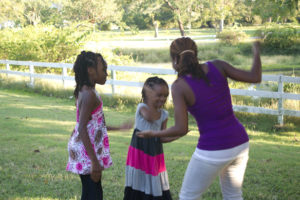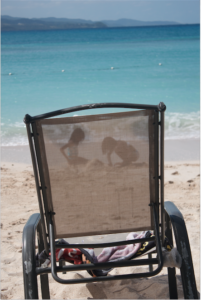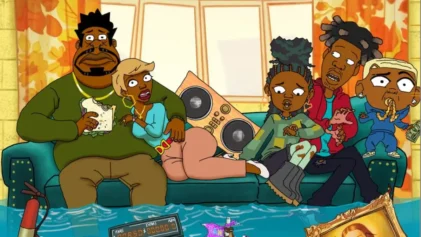In August of 2012, when our family committed to exploring unschooling as a means of freeing our children from what was feeling like unnecessary information-gathering and cultural whitewashing, we had no idea where the journey would take us. We’re walking down a path of innovative, self-directed life design, a route that Joi Ito, media lab director of famed Massachusetts Institute of Technology (MIT) describes as using a compass instead of a map. Ito believes — and my husband, Kris, and I agree — that adults now, and certainly adults of the future, don’t need the traditional pre-planned paths (or maps) like advanced degrees and piles of information to succeed. Instead, they need to be well practiced at being open and alert to what’s going on around them right now, and savvy enough to use what they observe to serve a need and design a life.
Some of the best technological innovators of our time have created revolutionary products (and financial success for themselves) not based on their education (or perceived map to success), but from innovation as I see it. Today, largely through unschooling, I have come to understand innovation as a mindset, and not a stroke of brilliance only achievable by geniuses at MIT or others with advanced degrees. Innovation is about the ability to build upon existing ideas with confidence, a willingness to fail forward, and an understanding of how to stay present and connected while mining one’s deepest interests.
“Even though the world is extremely complex, what you need to do is very simple. I think it’s about stopping this notion that you need to plan everything. Don’t plan everything. Don’t stock everything. Focus on being connected, always learning, fully aware and super present.” — Joi Ito
Kris and I prioritize that super presence by working to stay connected to our values and aligning our actions with those values. We want that same level of connection for our daughters. Connection to themselves, to their means of thriving, and to their perception of their ability to positively affect their environment — that is what we believe will give our daughters choices in life. Access to the choices that increase our children’s opportunities to live well is a shared desire among parents, whether their children are traditional students, homeschoolers, or life learners (another term for unschoolers).
Since our shift in 2012, we’ve learned so much about our children, 
The Two Biggest Lessons We Learned from School-Free Living
1. Exposure and learning are two different means of farming information, and with parents’ help, children can leverage both.
As unschoolers, we have no curriculum or loose lesson plan, no written or verbal tests or quizzes, and our daughters (ages 11 and 9) are not required to prove their learning in any way. Quizzes and tests don’t prove that a child learned something; they only prove that they remember it. Memorization is not a form of connecting with information; it is a way of proving exposure to information.
For some topics, exposure might be the goal. For example, we mandate current events talks in our home. Every weekday by 8 p.m., both girls provide Kris and me with a verbal overview of one thing that happened in the world in the past two days. They get to choose where to research, what to cover, and they are required to tell us their opinion about what they read. They do not get to decide whether they will cover a current event one day, and we require that most of their current events are based on articles they read, not videos they watch. We set these parameters to help our daughters practice reading comprehension and get comfortable interpreting and expressing information they gather. When we’re focused on exposure, we set deadlines. This has helped our girls significantly improve their reading, writing and information conveyance skills over time. They can pull information from a variety of places and relay it with increasing clarity and confidence in their ability to present information to discerning ears (their parents).
In other cases, when learning and not mere exposure is the goal, we stay away from deadlines and solid parameters. In school, children learn in set blocks of time — an hour for math, an hour for language arts, an hour for science, etc. But when our youngest, Sage (age 9) is researching all the brush-stroke options to create the perfect digital rendering of a human eye (because she is, in fact, thoroughly fascinated by the diversity in human eyes), she may take 20 minutes or two hours. Neither one of those are inconvenient for us because there is no bell that will signal that it’s time to stop learning about one thing and start learning about another. Sage will shade the same eye for nearly an hour, focusing on details, looking at her own eye in the mirror, or the reference she’s using for a particular project. She is self-directed and sets her own goals for what it means to progress as an artist. That same ability to focus and self-govern is what I use as an adult when I’m writing a piece for a client, or working on a book or speech. That is not taught. It is encouraged; it is strengthened, and most of all, it is practiced by the individual, and cannot be forced without compromising one’s enthusiasm and curiosity about a thing.
The takeaway: Do not rely on school to help your children further their interests. Know what your child is deeply into, and help them make space for deadline-free exploration of those things. School is about exposure to a variety of things, and that can be good. But if you’ve read Malcolm Gladwell’s book, “Outlier,” and see any validity in his 10,000 hours rule, you see the potential to help your child excel in, and not just understand, an idea. Our children will not be excellent at everything they try, but they can absolutely become excellent at something that consistently keeps their interest. In that mindset, instead of packing your child’s schedule with the extracurricular activities to which children “should be exposed,” be sure to make room for them to dive deep into the things in which they show deep interest. Room to roam, not information-gathering deadlines, are what can take a child from good to great in areas of interest where they show high self-governance.
2. School isn’t the only place to learn socialization skills.

I believe school isn’t even the best place for children to practice social skills at all. In fact, the only place any human being will spend blocks of time in groups with the same people who are of/near their same age is in school or school-like settings such as church. School prepares children for socializing in school, not in the real world. Most real-world settings are not comprised of homogenous groups working under the leadership of one person. This is part of why intergenerational relationships continue to diminish. Many children now don’t respect elders unless they live with them. This is why so many children are intimidated by or resentful of adults or people they perceive to be in positions of power; they have no real practice dealing with the real-world dynamics of interpersonal communication. School socialization isn’t real. It doesn’t even work in school because being in the same age group doesn’t mean you’ll automatically get along, or that you should.
The takeaway: Let your children interact with adults other than you. For example, when you’re at the supermarket, let your 9-year-old take the lead (with your guidance) on handling the budget. Let your 11-year old communicate with the cashier. If you can’t find an item, have your child go to the customer service counter to get information. Stand nearby (in case of danger, of course) but not near enough to come to the rescue if they get uncomfortable.
School teaches our children to rely on adult instruction, but as a parent, you can endeavor to mitigate the potential damages therein by capitalizing on opportunities to help your children trust themselves and see their own ability to manage anxiety and information conveyance in various real-world settings. By making room for your child to be present in the living of life (including the necessary interactions with various people), you can help them build vital communication skills like reading body language and recognizing speech pattern inferences. These skills help build that same confident autonomy and real connection that we believe will help children mature into well-adjusted adults.
Nurturing Confident Autonomy in Our Children
Progressive educator and renowned author bell hooks once wrote this about learning: The heartbeat of critical thinking is the longing to know — to understand how life works. Children are organically predisposed to be critical thinkers. Across the boundaries of race, class, gender and circumstance, children come into the world of wonder and language consumed with a desire for knowledge. Sometimes they are so eager for knowledge that they become relentless interrogators — demanding … Searching for answers, they learn almost instinctively how to think. Sadly, children’s passion for thinking often ends when they encounter a world that seeks to educate them for conformity and obedience only.
Though hooks and I would likely disagree on the role of compulsory education as part of a healthy emotional environment for children, we would definitely agree on the right to freedom of thought and expression for all people, including young ones. Through my lens, unschooling is an effective option for countering that embedded conformity and obedience focus from society. And my lens is not just my own. My view is shared among parents, thought-leaders, and even academics. This is why notable schools like MIT, Harvard, Stanford and Duke continue to actively recruit non-traditionally educated students. When children are supported by parents who help them identify how they (the children) learn, and what it takes for them to feel immersed in learning by way of exposure (new ideas and experiences) and immersion (hours of free time to uncover the layers within their areas of interest), they can thrive as adults.
None of us have to surrender our children to the school system, even when they are within it. We can counter the dangerous narratives promoted in schools that assert assimilation and sameness as the best route to financial success and stability in adulthood. We do this by prioritizing exploration of self and environment within the safe spaces of our guidance as their parents. But guidance does not mean deciding for them, it means giving them space to decide on their own interests, and to decide on what to do to practice the skills that will help them to be more than students who become adults with education. These practices can help them become adults who benefit from a love of learning.
The way I see it, if my daughters know how they learn, and they are present enough to connect their abilities and deepest interests (what they learn) to pressing needs in the world around them, they can leverage their skills to realize income, impact and genuine joy in their world.
Akilah S. Richards is a six-time author, digital content writer, feminist speaker, and lifestyle coach. She writes passionately about self-expression, womanhood, modern feminism, location independence and the unschooling lifestyle. Akilah is a storyteller who believes in the power of expressed personal narrative and deep self-acceptance as tools for authentic self-expression and community enrichment. Learn more about her work at AkilahSRichards.com



